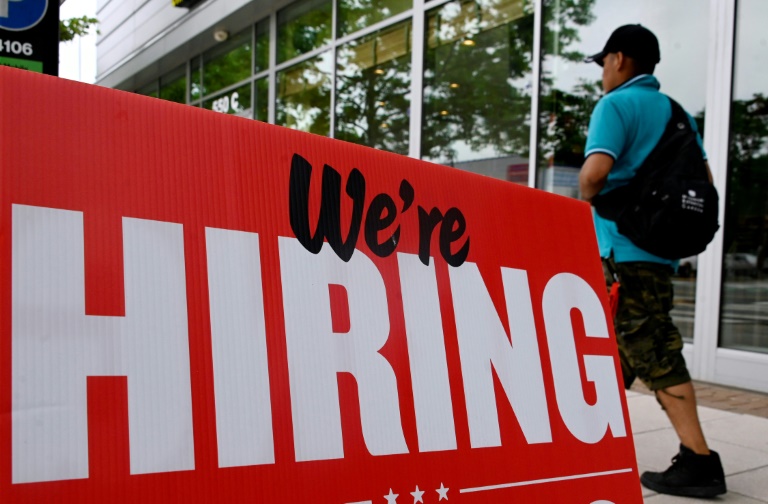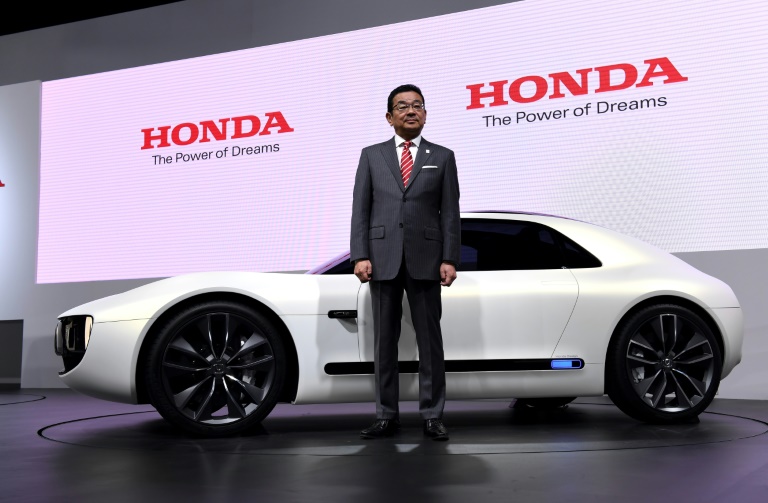Asian equities were mixed Friday as the optimism over a possible pause in Federal Reserve interest rate hikes again gave way to worries about the global economy as more than a year of monetary tightening kicks in.
Disappointing earnings from Wall Street titans Apple, Amazon and Alphabet — who together are worth almost $5 trillion — indicated higher borrowing costs and elevated inflation were weighing on consumer demand.
The readings came in towards the end of a week when the stocks rally that defined most of January hit the barriers as traders worried that the buying had been overdone and that there were plenty more bumps in the road for the economy.
Those concerns also overshadowed optimism about China’s reopening and recovery from nearly three years of zero-Covid policies that hammered business activity.
They also offset the positive mood created by an acknowledgement from the Fed that it was making progress in bringing inflation down from multi-decade highs, fuelling hopes it was nearing the end of its rate hike cycle.
Eyes are now turning to the release of US jobs data later on Friday, which will provide a clearer idea about the state of the world’s biggest economy.
“A softer payrolls data, so long as it does not fall off a cliff triggering a recessionary (backlash), could re-engage all the favourite trades of the year,” said SPI Asset Management’s Stephen Innes.
“Not least, it would provide the most critical evidence to date to suggest that the market’s rates pricing is more in line with reality than the Fed’s own more subtly hawkish higher for longer signalling.”
Wall Street’s three main indexes ended broadly higher, with the Nasdaq piling on more than three percent thanks to forecast-beating results from Facebook owner Meta.
However, the after-hours reports from Apple, Amazon and Google’s parent firm Alphabet brought investors back down to earth.
Apple said sales dropped more than expected in October-December, Amazon’s revenue was hit by weak consumer demand and Alphabet results fell short of estimates.
“The war in Ukraine, inflationary pressures, economic uncertainty and macroeconomic headwinds kept the consumer sentiment weak in 2022 while smartphone users reduced the frequency of their purchases,” Harmeet Singh Walia, of Counterpoint Research, said in a report on Apple.
Hong Kong led losses in Asian trade, losing close to two percent, and Shanghai was off more than one percent. Taipei was also down, while Singapore, Seoul and Wellington were flat.
Still, Tokyo, Sydney, Manila and Jakarta rose.
Futures in the Nasdaq and S&P 500 were both deep in the red.
On currency markets, the euro and pound lost further ground after weakening Thursday despite the European Central Bank and the Bank of England hiking interest rates more than the Fed.
Crude prices ticked slightly higher a day after suffering more selling pressure on concerns about the economic outlook and demand, with US stockpiles rising last week more than expected.
“Oil’s in a bit of a limbo as the market awaits tangible signs of China’s oil demand recovery,” Vandana Hari, of Vanda Insights, said.
– Key figures around 0230 GMT –
Tokyo – Nikkei 225: UP 0.4 percent at 27,518.75 (break)
Hong Kong – Hang Seng Index: DOWN 1.9 percent at 21,547.50
Shanghai – Composite: DOWN 1.2 percent at 3,245.90
Dollar/yen: UP at 128.67 yen from 128.62 yen on Thursday
Euro/dollar: DOWN at $1.0898 from $1.0918
Pound/dollar: DOWN at $1.2218 from $1.2225
Euro/pound: DOWN at 89.18 pence from 89.21 pence
West Texas Intermediate: UP 0.1 percent at $75.97 per barrel
Brent North Sea crude: UP 0.2 percent at $82.29 per barrel
New York – Dow: DOWN 0.1 percent at 34,053.94 (close)
London – FTSE 100: UP 0.8 percent at 7,820.16 (close)

 Business5 months ago
Business5 months ago
 Business4 months ago
Business4 months ago
 Events6 months ago
Events6 months ago
 People4 months ago
People4 months ago
 Events3 months ago
Events3 months ago
















